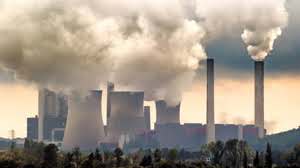Last week BloombergNEF (BNEF) published a new report that quantifies the impact of the COVID-19 pandemic on U.S. carbon dioxide emissions.
The report estimates that 2020 emissions will be 9.2 percent lower than in 2019, reaching a level last seen in 1983. At that time, BNEF notes, the economy was 60percent smaller than it is today.
Although U.S. carbon dioxide emissions have been declining for a dozen years, BNEF estimates that this year’s decline will be the largest on record. Without the impact of Covid-19, the report estimates that emissions would have still fallen by about 1percent. Thus, the pandemic alone was responsible for about an 8percent decrease in emissions.
The report breaks down emissions by sector, and also includes the impacts of this year’s forest fires. On the sector-by-sector impact, BNEF Chief Content Officer Nathaniel Bullard wrote:
“Transport, now the biggest contributor to U.S. greenhouse gas emissions, has taken its biggest year-on-year hit ever. Emissions from transportation will probably be down more than twice as much as during the early days of the 2008-2009 financial crisis. Power emissions are likely to drop by a record proportion too, but industrial emissions won’t.”
Forest fires were a significant contributor to U.S. emissions this year. Although the transport and power sectors are experiencing estimated declines of 4.0 percent and 2.8 percent, respectively, forest fires are estimated to have added 2.8 percent to U.S. emissions this year. That would offset the decline from the power sector. However, the report also notes that the impact from forest fires is usually temporary, as atmospheric carbon dioxide is removed as the forests regrow.
The flip side of the historic emission decrease this year is that BNEF expects a significant rebound in emissions after the pandemic. However, the report highlights that the silver lining in this year’s pandemic is that it puts the U.S. back on track to meeting our commitments from the Paris Accord prior to leaving the agreement:
“The downtick in emissions we expect to see for 2020 would bring the U.S. back on track to meet its original Paris pledge of reducing emissions 26-28 percent on 2005 levels by 2025. Prior to that, the U.S. was well off track. The pandemic inadvertently gives the U.S. a second chance to make good on its commitment.”
BNEF clients can access the full report, its breakdown by technology and region, as well as the underlying Excel data and previous editions from the client page or on the Bloomberg Terminal.










